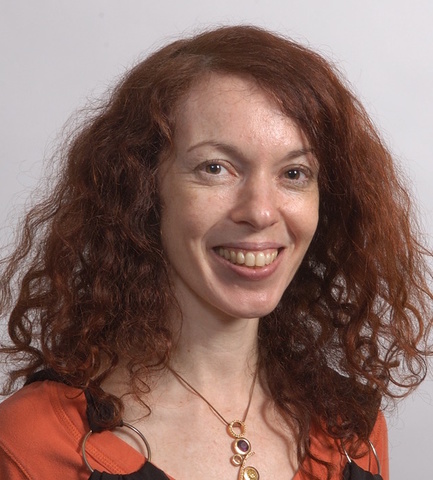Siegelmann Elevated to IEEE Fellow

The Institute of Electrical and Electronics Engineers (IEEE), the world's largest professional organization for the advancement of technology, has elevated UMass Amherst computer science professor Hava Siegelmann to the honorary position of Fellow for her "contributions to neural computation."
With over 400,000 IEEE members in 160 countries, less than 0.1 percent of voting members are selected annually for the association's highest honor. Dr. Siegelmann joins 8 other faculty members in the College of Information and Computer Sciences who hold the distinction.
Dr. Siegelmann is currently on leave from UMass Amherst developing and directing DARPA's (Defense Advanced Research Projects Agency) L2M - Lifelong Learning program. L2M encompasses research, development, and implementation of computational systems capable of true learning, and applying previous learning to navigate novel circumstances without reprogramming or retraining. Lifelong Learning is currently at the cutting edge of computational science, with major research being undertaken by industry leaders such as Google, Facebook, Apple, and IBM.
At UMass, Siegelmann's BINDS lab (Biologically Inspired Neural and Dynamical Systems) focuses on biological learning mechanisms and the incorporation and adaptation of pertinent mechanisms into computational learning systems. Siegelmann also serves as a core member of the university's Neuroscience and Behavior Program.
Siegelmann co-originated Support Vector Clustering with Vladimir Vapnik, which has become one of the most widely used clustering algorithms in industry. She also created a sub-field of computation with her discovery of Super-Turing computation, which is viewed as the basis for biological computation and has become a significant focus in the effort to accomplish learning in computational systems.
She earned a Ph.D. from Rutgers University, an M.S. from The Hebrew University, and a B.A. from Technion, all in computer science. Her academic distinctions include fellowships from the Center for Complexity Systems, the Alon Fellowship of Excellence of the Israeli National Committee for Higher Education, and the Rutgers Doctoral Fellowship of Excellence. In 2015, the NIH named Siegelmann one of 16 presidential BRAIN Initiative awardees for her work on energy constrained brain activation. She is the 2016 recipient of the Hebb Award of the International Neural Network Society as well as the 2017-9 IEEE distinguished lecturer.
For more information about the IEEE Fellowship Program and a complete list of newly elevated fellows, see the IEEE website.